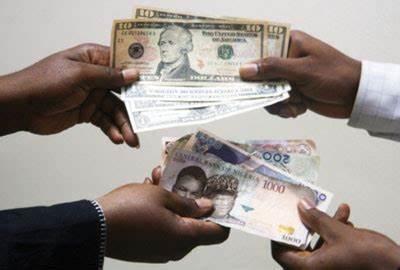Two months after the Central Bank of Nigeria floated the Naira, Nigeria’s currency is still in free decline against the dollar, which has made the problems facing Africa’s largest economy even worse.
The country’s currency has fallen against the Dollar from N750/$1 in the so-called black market to N950/$1 on Monday, August 14, 2023, after the CBN liberalised the foreign exchange market on June 14 until now.
As the difference between the official window and the black market increased to N181, undermining the purpose of the CBN’s floating of the Naira, the situation grew increasingly concerning.
According to analysts with knowledge of the industry, the current investigation of the apex bank by special investigator Jim Obazee, who was appointed by President Bola Ahmed, may have made the Naira’s depreciation worse.
The CBN’s seven-year consolidated financial statements were disclosed last week, and the details revealed a total debt of $7.5 billion to JP Morgan and Goldman Sachs, as well as a $33.88 billion foreign reserve. According to economist Prof. Uche Uwaleke, this is one of the reasons why the currency crisis has persisted.
However, the Acting CBN Governor, Folashodun Shonubi, attributed the problems in the sector to unreported foreign remittances and the uncontrolled parallel market.
As a result, the currency crisis is still having an adverse effect on the nation’s economy, which is heavily dependent on oil.
The Association of Bureau De Change Operators of Nigeria (ABCON) president, Aminu Gwadabe, said in an exclusive interview with DAILY POST on Monday that the recent forex market crisis cannot be attributed to the organization’s members.
He attributed this to the proliferation of illicit online platforms that operate in numerous jurisdictions without adhering to a set of uniform norms, stealing money sent back home by diaspora members while excluding them from the legitimate market.
He asserted that recent events in the industry had increased the necessity for the CBN to instruct its members to pick up diaspora remittance agents in order to close loopholes and halt the forex crisis.
According to him, “The revelation of the apex bank on diversion of diaspora remittance has vindicated our long-time advocacy to make BDCs pick up agents of diaspora remittances to block the loopholes that the CBN is bringing to the forefront.
“To make diaspora remittance inflows into the official market, the BDCs should be made the sole agents of diaspora remittances and break the monopoly of the agency of the international money transfer operators.
“What we have now is the prevalence of unlicensed online application platforms and fintech that operate in different jurisdictions without standardized regulation capturing diaspora remittances and denying the official market.”
Speaking on the continuous naira decline, Idakolo Gbolade, Chief Executive Officer of SD & D Capital Management also noted that:
“The Naira’s continuous decline can be mainly attributed to reduced forex inflows into the economy, which has led to the scarcity of foreign currencies and has put pressure on existing reserves. These pressures, combined with our debt obligations, have led to reduced foreign reserves.
“The cooperation of major forex revenue contributors like the oil majors and commercial banks are also suspect because they have encouraged increased arbitrage in the foreign exchange for their benefit and profitability.
“The federal government needs to critically examine the policy and ensure that the CBN monitors the implementation of the policy.
“This uncertainty in this sector has contributed to rising inflation and rising high cost of living,” he stated.





